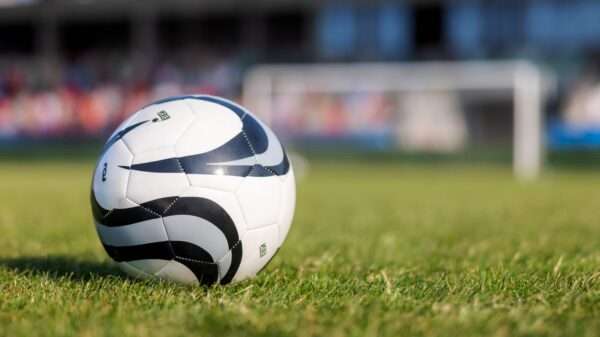Glastonbury Festival, a globally renowned event celebrated for its eclectic mix of music, arts, and culture, has announced that it will not broadcast England’s Euro 2024 round-of-16 match during the festival. This decision has stirred a range of reactions among the festival-goers and football fans alike, who were hopeful of enjoying both their favorite bands and the national team’s performance without having to choose between the two.
The festival, taking place from June 26th to 30th, coincides with the round-of-16 matches of the UEFA European Championship, leading to expectations that the event would screen the games. However, the organizers have opted not to incorporate the football match into the festival’s programming, maintaining their focus on the diverse lineup of musical acts and artistic performances that define Glastonbury’s unique character.
One of the primary reasons behind this decision is the festival’s longstanding ethos and commitment to creating an immersive, alternative experience that contrasts with mainstream entertainment. Glastonbury has always prided itself on being a cultural melting pot where music, art, and social activism intersect. Introducing a major sporting event into this environment could potentially disrupt the atmosphere and distract from the festival’s core offerings.
Moreover, logistical challenges and safety concerns also play a role. Accommodating thousands of fans eager to watch a live football match would require significant adjustments to the festival’s infrastructure. It would necessitate setting up large screens and managing crowd control, which could strain the festival’s resources and pose security risks. The organizers likely concluded that the potential complications outweighed the benefits of screening the game.
The decision has undoubtedly disappointed many football enthusiasts attending the festival. For English football fans, the Euro 2024 match is a significant event, especially if the national team advances to the knockout stages. Missing the opportunity to watch their team compete live, while being at such a major event, is a hard pill to swallow for some. Yet, this also highlights the festival’s distinctive identity and its commitment to preserving an experience that remains true to its roots, even at the expense of not aligning with every interest of its diverse audience.
In the age of smartphones and widespread internet access, it’s likely that many festival-goers will find ways to stay updated on the match’s progress. Social media and streaming services offer alternatives for those who cannot bear to miss the game. However, the essence of being at Glastonbury is to immerse oneself in the festival environment, and the decision encourages attendees to fully engage with the unique offerings of the event rather than dividing their attention.
Glastonbury’s choice underscores a broader cultural debate about the intersection of different forms of entertainment and the spaces they inhabit. While blending live music festivals with major sports events can create memorable experiences, it can also dilute the distinctiveness of each. By prioritizing its artistic heritage and community-focused ethos, Glastonbury reinforces its position as a sanctuary for those seeking an escape from the mainstream.
In conclusion, the decision not to broadcast England’s Euro 2024 round-of-16 match during the Glastonbury Festival reflects the organizers’ dedication to preserving the festival’s unique character and avoiding logistical complications. While it may disappoint some attendees, it also reaffirms the festival’s commitment to its core values and the distinctive experience it offers.















































